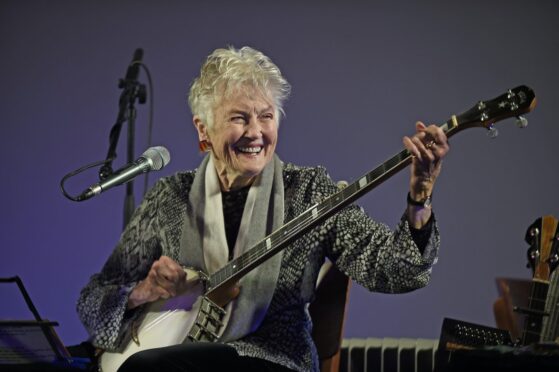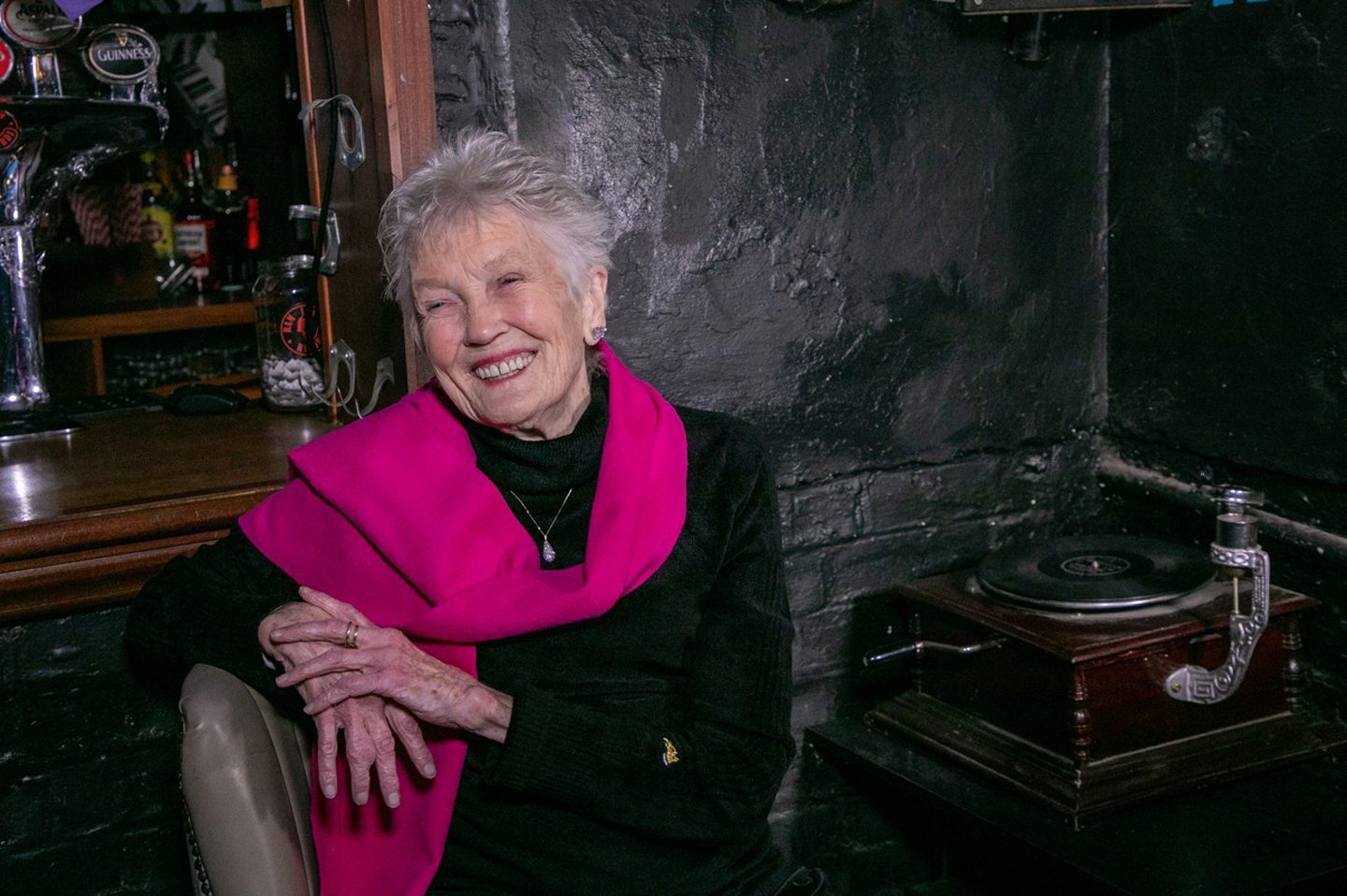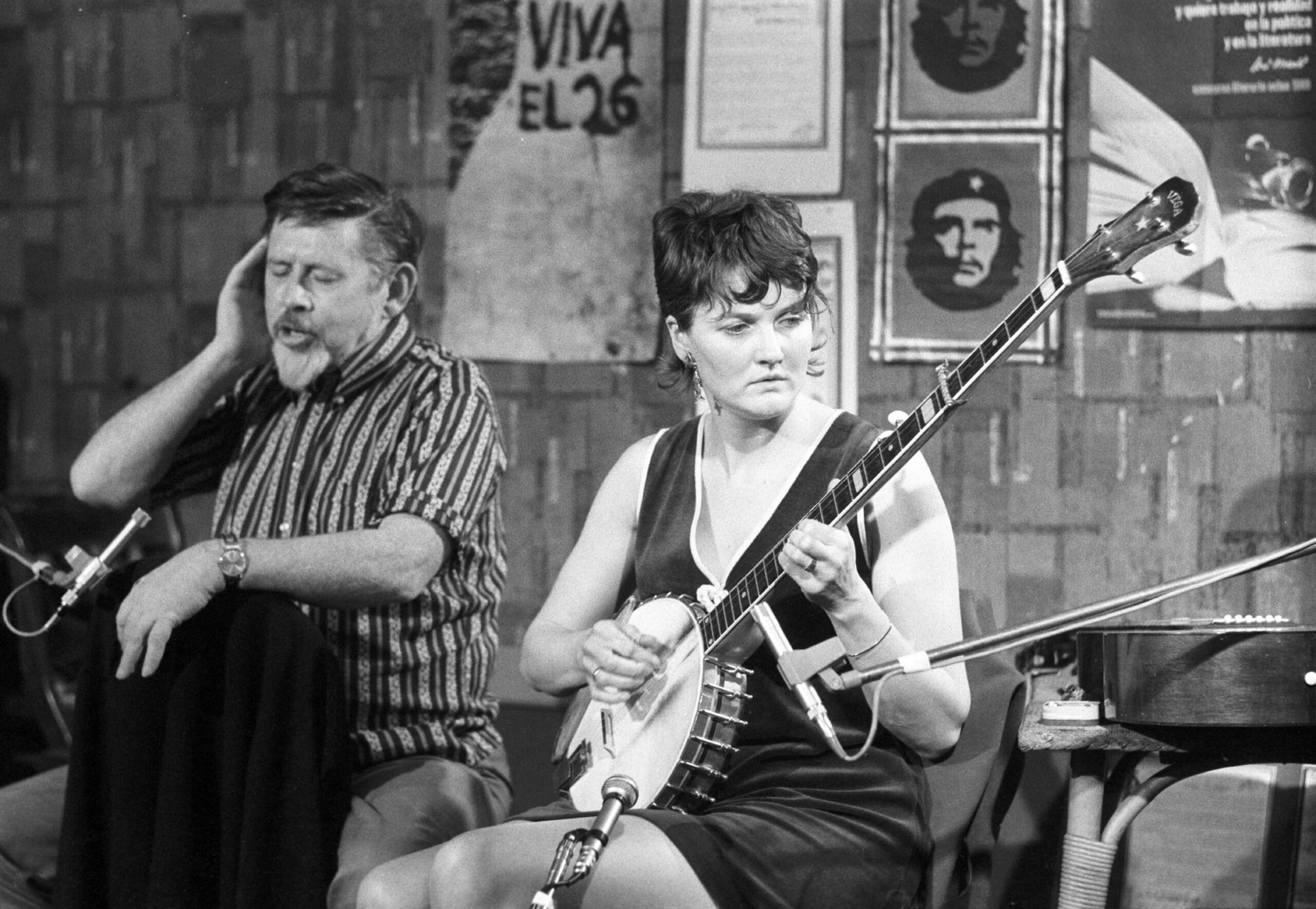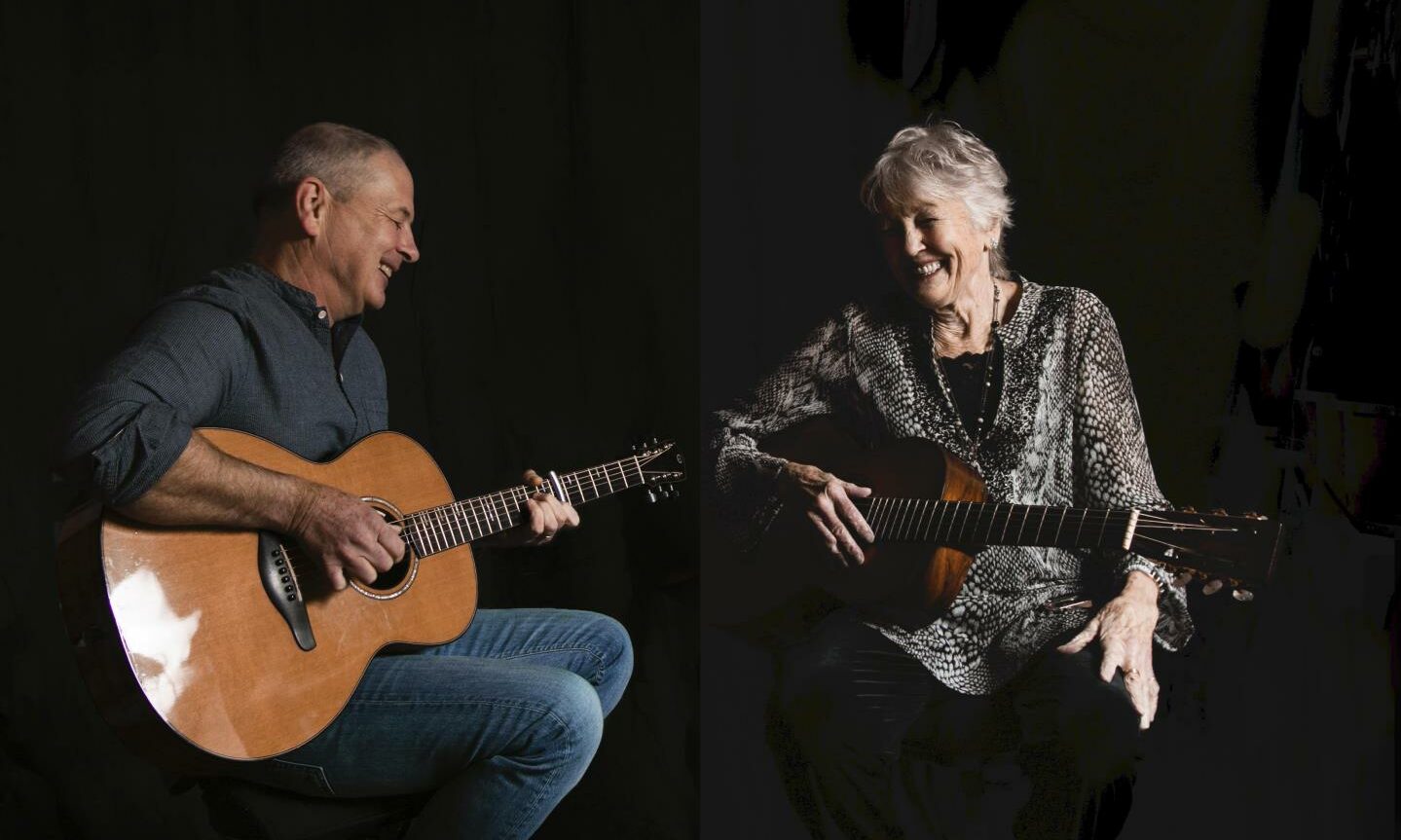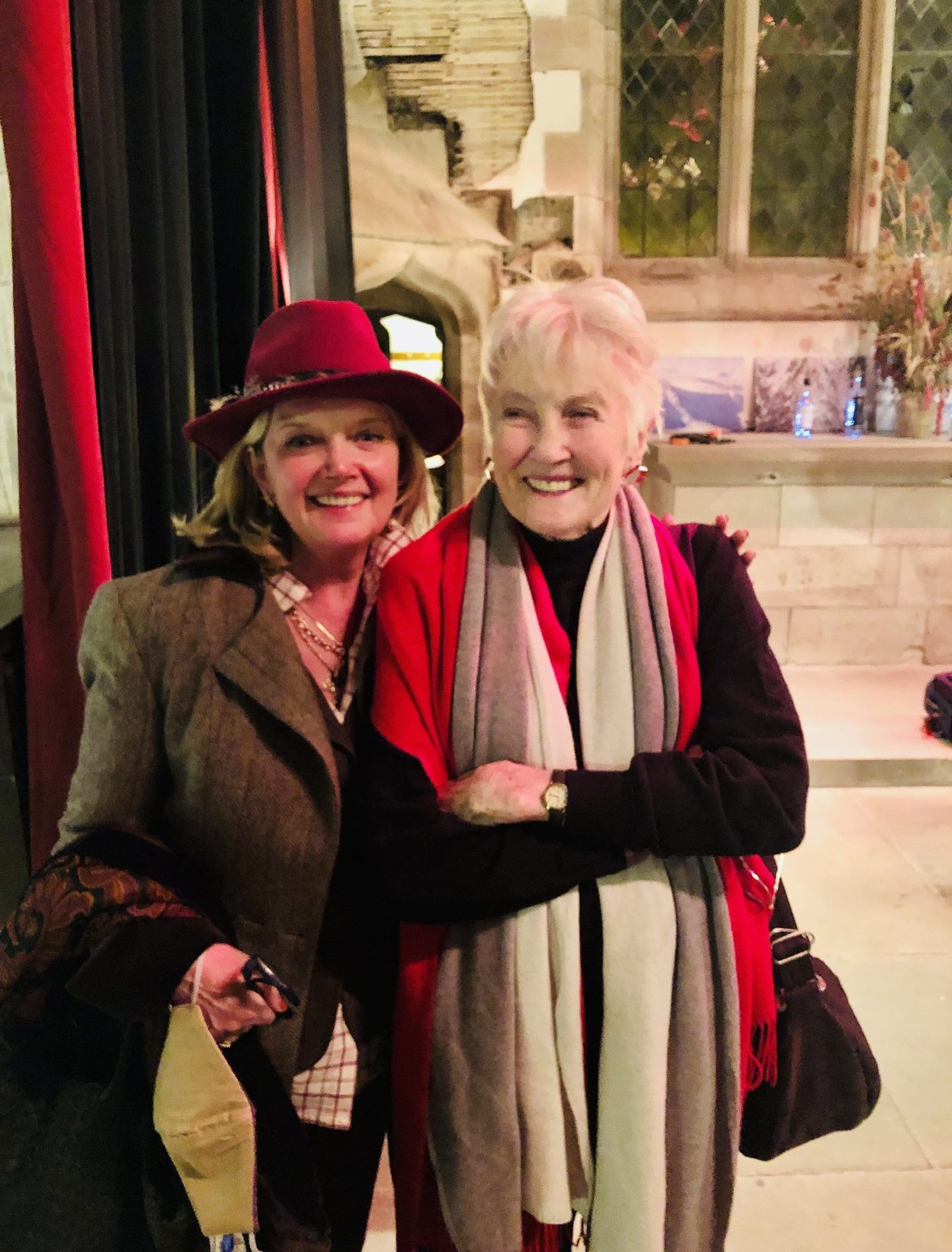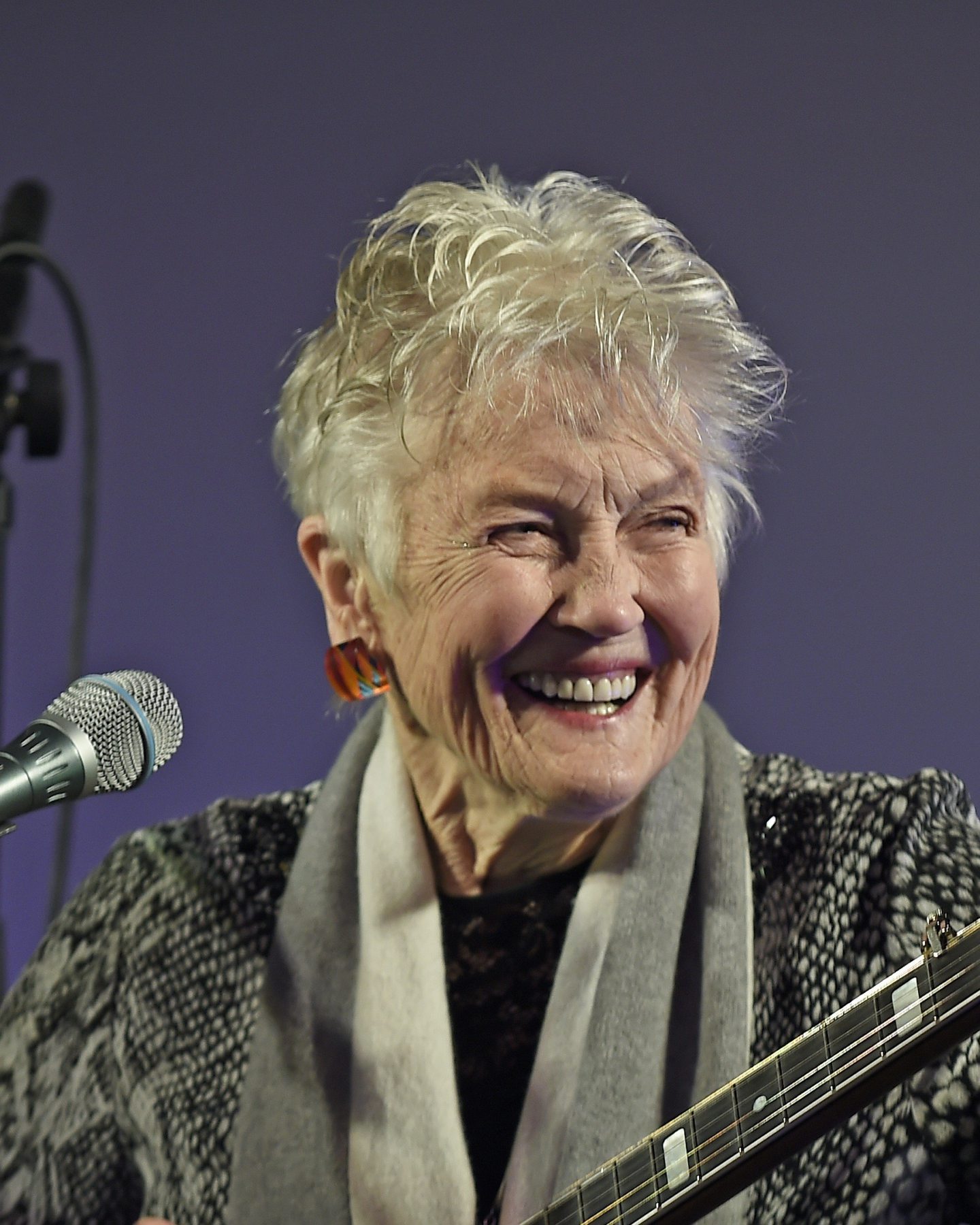Peggy Seeger has never had any interest in music as “content” or pop, rock and folk groups staying hitched to their old hits to boost their bank balances.
In her world, the political and the personal are inextricably intertwined and, for all her love of Scotland and Lewis Grassic Gibbon’s Sunset Song, Cloud Howe and Grey Granite, it’s impossible to overlook the full range of what this remarkable character has witnessed and experienced since she was born in the United States in 1935.
She may have travelled to Britain in the 1950s “because the money gave out”, but Peggy is folk music royalty; the sister of Pete Seeger, famous for Where Have All the Flowers Gone and If I Had a Hammer, and the partner – for 33 years – of Ewan MacColl, who wrote the famous song The First Time Ever I Saw Your Face in her honour.
Solidarity with working people
Yet, while she turned 89 last week, I didn’t get any impression of somebody slowing down or contemplating retirement. Polite, engaging and convivial, my first thought was that she rather resembled Angela Lansbury, another formidable left-wing woman whose range far extended beyond playing Jessica Fletcher in Murder She Wrote.
And my second was that, even as she remarked about her occasionally off-kilter memory: “One of those days, you’ll have to remind me who I am”, she exuded the impression she had a thousand stories to tell, whether entertaining Fidel Castro in Havana or mourning Ewan’s daughter, Kirsty MacColl, who sang Fairytale in New York with Shane McGowan of The Pogues before her death in a boating accident in 2000.
This autumn, she will be involved in events in Stonehaven on September 20, St Margaret’s Braemar the following night and at the Ardersier Folk Club, on September 24. In the last 60 years, she estimates she must have played in almost every major town and city in Britain and we chatted about everything from the McCarthy witch-hunt to Bob Dylan’s passion for Scottish music and Robert Burns in particular.
But much of the conversation was about her own love for the north-east and MacColl, who died in 1989, with whom she founded The Critics Group, a “master class” whose influence shaped and moulded a renaissance in the folk scene in the 1960s and beyond.
The sense of community gripped me
She said: “I think Ewan wished he had legitimately been Scottish, but he was born in Salford. Yet, we came here so often, for walking and climbing holidays in the north west and to make and record music at folk clubs, many of whom are no longer open.
“I was captivated by it; the sense of humour, the small communities which you find in A Scots Quair and the response from audiences wherever we travelled.
“Anybody who gets up on stage to do something has more than their share of ego – but the main part of it was that I felt I had something to contribute.
“Folk music comes from the lowest economic class and that’s where it gets its sustenance. When it’s taken into the middle and upper classes, it’s regarded like a museum piece, because they haven’t lived the life, but some people are still living it.
The words and melodies survive
“The songs may not be as misogynistic or have so much violence as many of the ones from the past, and they often express lives which have gone. People aren’t milkmaids or carters or wagoners any more, but many of these songs still survive.
“We now have access to the radio and streaming services and iTunes, yet people can recognise when they hear a song that tells the truth – even if it is hard to hear.
“I grew up with them and I feel a duty to push them forward, even the ones where the woman gets murdered by her lover. You have to remember her name and honour her by knowing her story and and what happened to her.”
The words testify to how Peggy has championed a variety of causes throughout her life, from supporting the Greenham Common anti-nuclear female protestors in the 1980s to tackling gender-based violence wherever it manifests itself.
She told me she doesn’t regard herself as a “brave political hero”, but in her own, quiet, persuasive fashion, offered a welcome antidote to the cold warriors engaged in sabre-rattling as conflict once again blights the landscape in Ukraine and the Middle East.
There’s love and joy in these songs
When Peggy appeared on Desert Island Discs more than 20 years ago, she didn’t veer down the melancholy route. Instead, the tone was one of celebration.
So she chose works by Ewan (The Joy of Living), Irene Scott (My Joy of You) and added a sprinkling of Bach to the mix with a coda from Paul Simon (Loves Me Like a Rock).
Just don’t ask her about those who try to pretend they’re folk singers. As I did.
She said: “If you’re thinking about going to a folk club, so you can go on the road and become famous, I think you are in the wrong business.
“I mean, Scottish folk music, English folk music, was unaccompanied for so long, but it seems to be the thing these days – and I’ve done it myself – that you add drums and trumpets and big band parts to the point where it just becomes another song, which people might like, but they probably won’t even notice the words.
Folk is made by those who live it
“It doesn’t work. You have to remember that you can’t write a folk song. A folk song is MADE by being part of a community which carries it forward. That’s how it is.
“Although many in these old communities have died, folk clubs in themselves are a community and you make songs about where you live, close to the bone, which have a true connection to people’s lives, how they spoke, how they met and lived and loved.
“Just going into folk music, so you can go on tour is the wrong way round for me.”
It’s a very long time since Peggy settled in Britain in 1956 as a young woman when the US government threatened to seize her passport after she visited China.
But it’s longer still since the Calvinists banned musical instruments in the Western Isles and, while she is an advocate for unnaccompanied singing, that was a step too far.
Life goes on and that is precious
She said: “The people had to bring out their fiddles – which was regarded as the instrument of the Devil – and flutes and pipes and throw them in the fires.
“It was tragic, so we don’t know what the music used to be like on the islands.”
And yet, despite the state of the world, Peggy smiled when I asked if she was planning on a reunion with her friend, Fiona Kennedy, as she ventures back to Deeside.
“I certainly hope so. I think Fiona is wonderful – we’re a mutual appreciation society!”
Five questions for Peggy Seeger
- What book are you reading? Brooklyn, and Long Island, both by Colm Toibin. And I would recommend The Covenant of Water by Abraham Verghese. It is absolutely brilliant.
- Who’s your hero/heroine? I was with Ewan MacColl for 33 years and wouldn’t be where I am today without him. Then there’s my other partner Irene Pyper-Scott.
- Do you speak any foreign languages? French – badly.
- What’s your favourite band/music? I don’t do superlatives, so won’t choose just one.
- What’s your favourite possession? My life. That’s the only thing I possess. I love my children beyond anything, but they are not my possessions.
